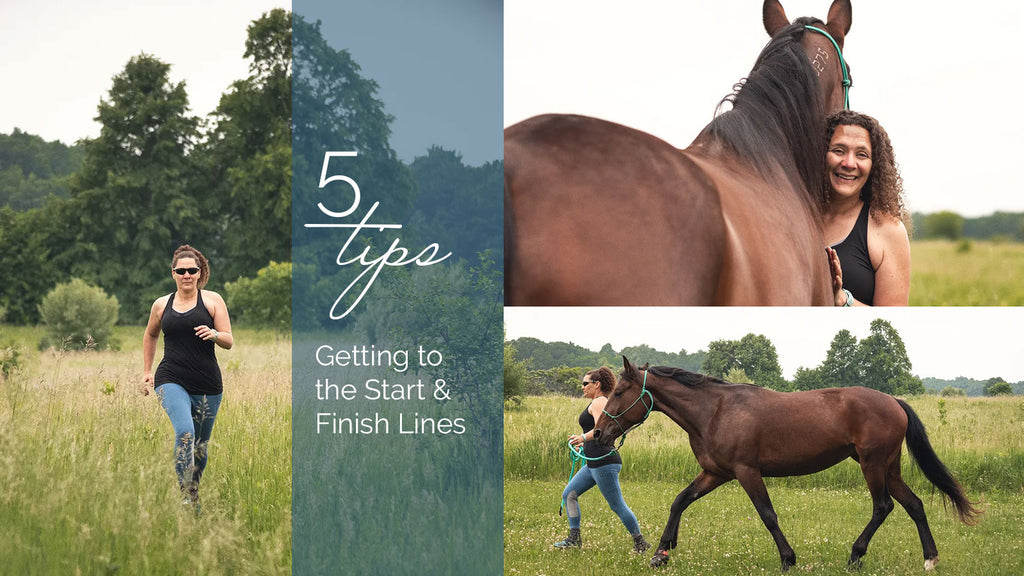5 Tips on Getting to the Start & Finish Lines

As a distance equestrian, getting to the start or finish - whether it's 10 miles or 100 miles - is hard. There can be horse or human injuries, horse training issues, trucks or trailers breaking down, and saddle fit problems that hinder goals. Here are five tips for equestrians on persevering through adversity:
- Love the horse first and the sport second. Everything we do with horses should make them happier and healthier. Your starts and finishes in any type of equestrian activity should fit each horse's individual needs. Identify their unique strengths first, then decide if that partner is right for the sport or a particular event.
- Find a mentor who does what you want to do. Get support from someone skilled in the actual sport you want to do. This might not be an instructor or a trainer; a current competitor could give pointers or let you watch and learn. A competing mentor could be what's missing.
- Break down goals into smaller parts - WAY smaller. Small wins are effective training. For example, if you wanted to try a 25-mile ride but you've never taken your horse on a trail ride, start with smaller goals of: 1) riding your horse to the mailbox and back 10 times; 2) hauling to a local trailhead and riding for 3 miles; and 3) taking an overnight camping trip and riding 5 miles with a friend. Suddenly you've got a horse that can haul off-site and trail ride - a huge stride toward a long distance ride!
- Partner with quality equipment vendors. Finding the right carts and saddles was epically frustrating for me as a distance equestrian. Incredible local business partners ultimately solved these problems and continue to support me today. Frey Carriage Co. made my carts and my dream saddle was built by Evolutionary Saddles. I maintain incredibly close relationships with my carriage maker and my saddler.
- Get creative with setbacks. If you find yourself unable to get to the starting line, setbacks can easily become learning opportunities, such as:
- Truck/trailer broke: ride the same mileage (test, pattern, etc.) at home if you can't make it; treat it like a dress rehearsal. Offer to help out a friend with fuel or event fees if they can haul your horse for you.
- Horse injured: go and volunteer to help with event management - you'll learn by watching others.
- Horse training issue: lease a more experienced horse or offer to help a human with a health issue by exercising or competing with their experienced horse while they take time off and rest!
- Rider injury: cross train a different human body part, for example if you have a shoulder injury, then ride a road bike. If you have a knee injury, perfect your push-up form. Attend events as a spectator or crew for a friend who is competing and learn from their strategies.
- Event canceled / inclement weather: put your work in anyways - yes miles still count in the arena or on the treadmill - crush the same mileage (test, pattern, etc.) at home like a dress rehearsal.

About Amy
Amy Broadie is a Wisconsin-based distance equestrian who loves endurance and competitive riding, distance driving, equathon, and ride and tie. She competes in distance sports with a haflinger, standardbred and McCurdy plantation horse. Amy is the co-founder and a coach at Fox Valley Distance Equestrian Team and you can learn more about:
- Endurance riding at American Endurance Ride Conference;
- Equathon or ride and tie at Ride & Tie Association; and
- Distance driving at Midwest Distance Driving Association.

Why Amy Loves BOTORI
The Active riding tights are my favorite! These hold up to the long miles I put in riding, driving, or trail running; I can do all 3 things in the product and they go awesome with the running shoes that I use for all those sports.
Photos by Erin Beckett
